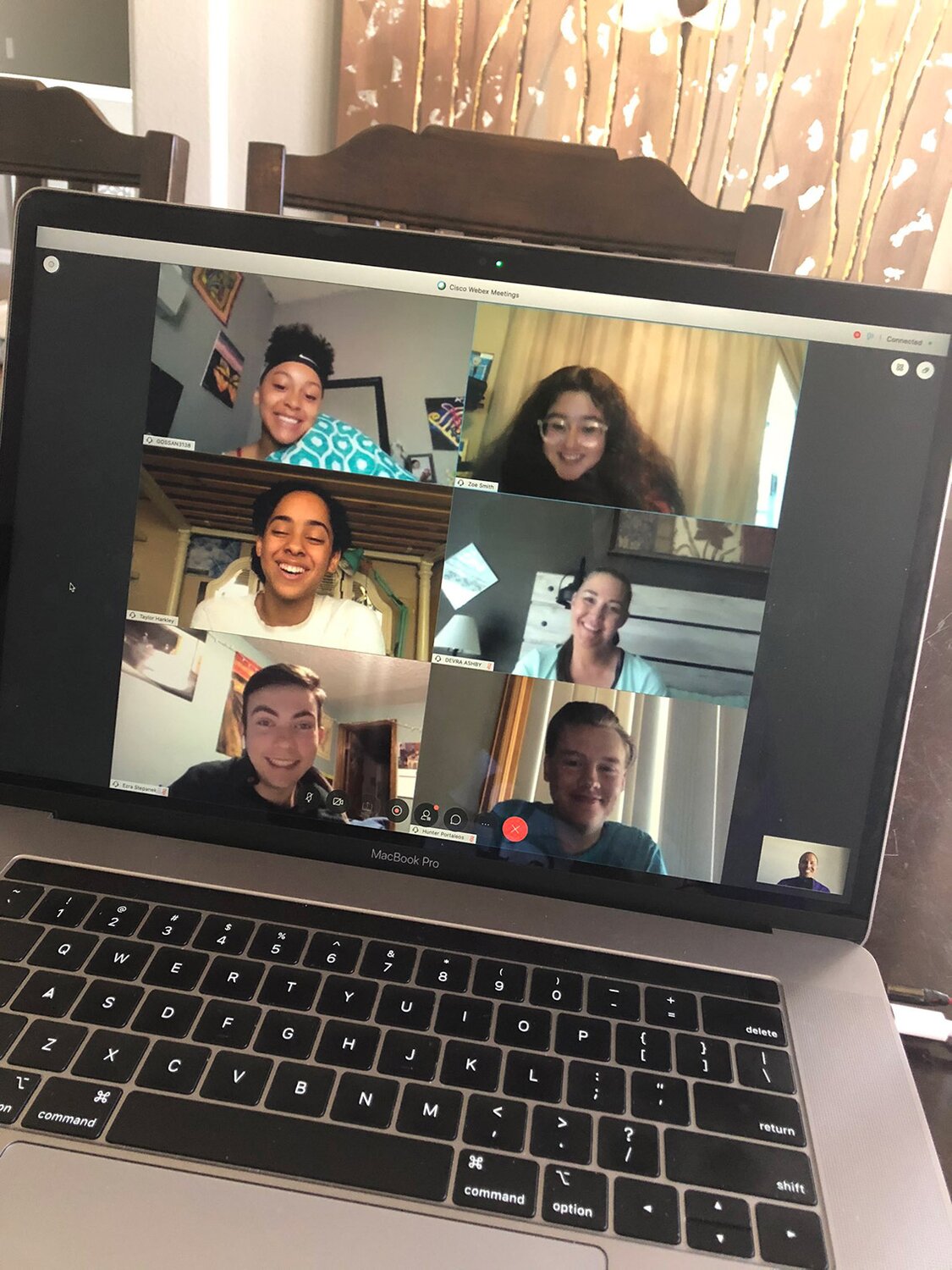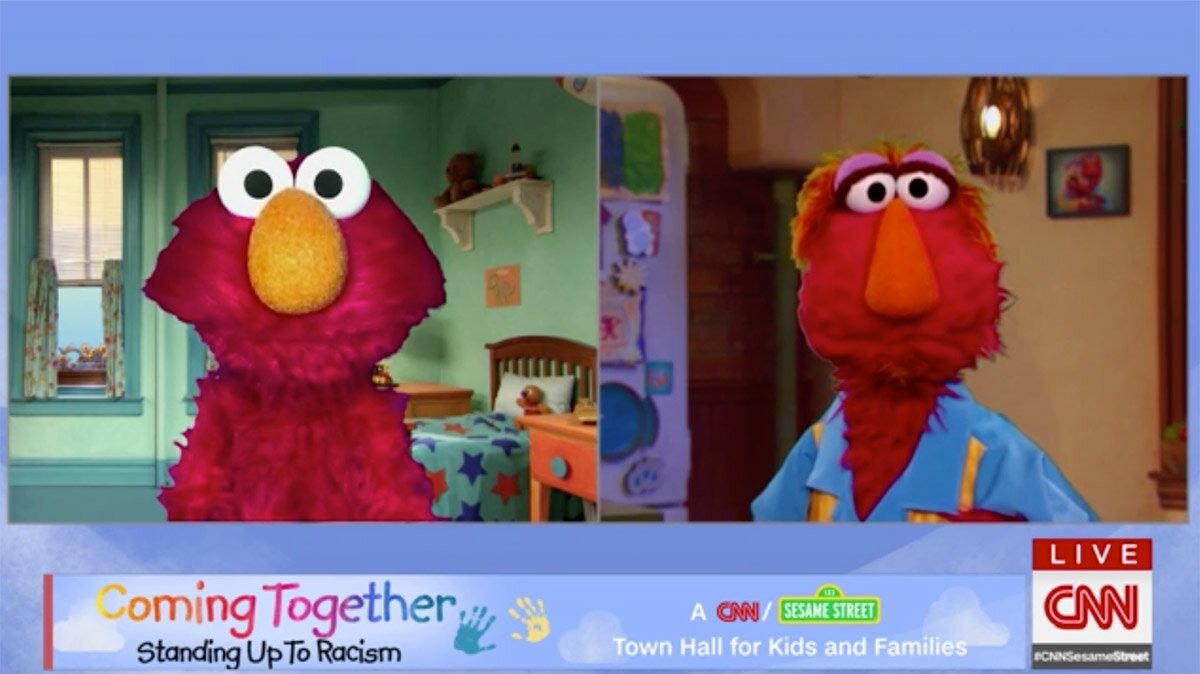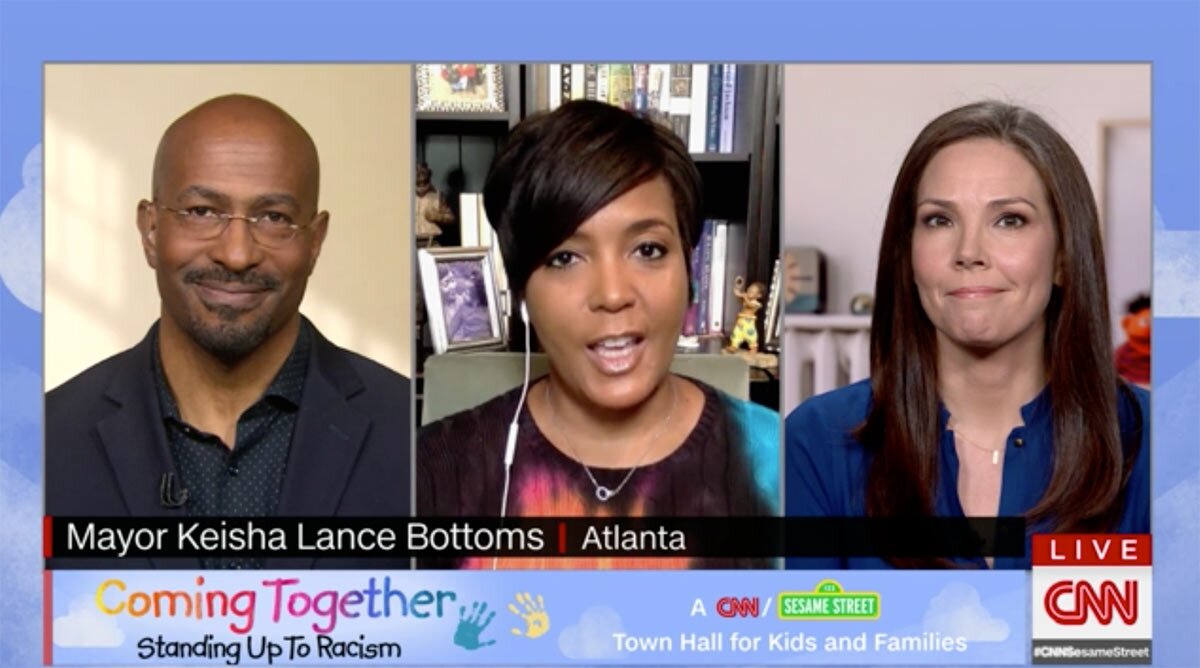Colorado Springs Superintendent has eyes on equity

Though it was thirty years ago, Dr. Michael Thomas remembers the event as if it were yesterday.
“I was 18 years old,” he recalls. “I, along with two other black friends, were leaving a friend’s house in Woodbury, Minnesota. All too predictably, I was pulled over without cause. My life flashed before my eyes while two white officers asked why we were in Woodbury.”
After running checks on their IDs for seemingly hours, and being interrogated in the middle of the night, a young Dr. Thomas and his friends were told, under no uncertain terms, to “Get out of Woodbury.”
Dr. Thomas felt scared, angry, and confused.
He also felt thankful.
“I am alive to tell my story.”
As Superintendent of Colorado Springs School District 11, Dr. Thomas says his own experiences of discrimination and racism inform his leadership. His life serves as a background of knowledge that has become a basis of learning for some 27,000 students and families in the district.
The conversation starts at home. Dr. Thomas says his daughters’ lived experiences with racism are not much different than their mother’s. “It saddens me that I cannot tell them this will end in my lifetime, nor theirs,” he says. “It is hard for me to process and comprehend the repeated injustices experienced by African Americans, and many communities of color in this country.”
What he can do, Dr. Thomas says, is share his insight. “I can share my story of overcoming, and how I’ve navigated obstacles and barriers.”
In a recent letter to District 11 students and parents, Dr. Thomas spoke of the importance of children seeing their own communities and lived experiences reflected back to them in their education. This validation, Dr. Thomas says, provides students with context, and is the building block on which all other new learning is based.
Dr. Thomas began his career in education creating mental health programs for African American boys, who, he says, were not validated at school. “It was very clear to me that these were bright students. But because of the perceptions of who they are, no one was reaching them.”
As an educator, Dr. Thomas says he is hard wired to find in-roads to learning. “There’s a name, there’s a family, there’s a community, around an individual that makes them unique. Tap into that.”
While 50% of students in D11 are children of color, around 80 to 85% of teachers are white. Social context around skin color is taught and learned, not innate in understanding, Dr. Thomas points out.
Representation “is a significant conversation that needs to continue to occur in K-12 education,” he says, acknowledging the education system has far to go. “We have considerable work before us to eradicate the inequitable outcomes within our district often experienced by students of color.”
In May 2020, the School District under Dr. Thomas’ lead passed an Equity Policy. The first of its kind in the region, the policy outlines steps the district will take to strengthen teachers’ knowledge and skill sets around “achievement inequities between historically marginalized students and white students.” The policy calls for culturally responsive teaching and learning, curriculum, and assessments.
“It took a year and a half to develop this policy, and it was probably the most transparent process of policy development we’ve ever had. Germane to that was our Student Cabinet,” said Dr. Thomas. “They put their perspective on a policy that would govern the board.”

Dr. Thomas meets regularly with the Student Cabinet, comprised of twenty members from each of the District’s highs schools. He says their perspectives and conversations often move him to tears.
“They know exactly what they need to learn. They know exactly how they want to be engaged,” he says. “We need to adjust our hearing frequency, because the answers are right beneath our noses. And it’s our young people who are demanding something different.”
For example, the district changed its learning module on racism last year after students expressed a disconnection from the book they were learning from. “They were struggling to make a connection to To Kill A Mockingbird,” Dr. Thomas says. “That’s a great example of students saying, ‘We want something more.’”
Teachers switched the curriculum to “The Hate U Give” by Angie Thomas, a modern novel Dr. Thomas says students found more representative and relatable. The text mirrors the conversations of their own teenage experience, including racism, police violence, and class divide.
“Districts across the country need to be open to hearing from our students, families, and communities about what is meaningful for them,” says Dr. Thomas. “It’s important that our students see themselves in their learning experiences. Our students just want to know that we see them and hear them.”
This applies to all students. Last summer, D11 was the first school district to participate in Colorado Springs’ Pride festival. Dr. Thomas says he faced personal backlash.
“I had to share all the statistics about how our LGBTQ+ students are victimized more often, disciplined more often, and have higher suicides rates,” he says. “If we can’t create a safe space in our district to really see all students, then why are we here?”
“Everybody at the table has a narrative that is worth listening to,” he says. “We need to honor that, and actually empower students to find that voice. It’s that voice that is going to lead this country. It’s that voice that is going to solve some of the challenges that our country is grappling with right now. It’s not us.”
Dr. Thomas spoke proudly of three D11 graduates who were involved in organizing recent downtown protests.
“To listen to these young men, their passion for their community, and to represent our district, was just powerful,” he says.
They’re talking about starting a nonprofit. “It’s a dad moment for me,” said Dr. Thomas. “That’s our mission in action.”
“You can’t put a grade behind that,” he says.

Sesame Street and PBS Kids offer resources on how to authentically talk to kids about racism and take action
Sesame Street and PBS Kids for Parents both offer virtual resources for parents and educators to talk to kids about race and racism, and how to take action. Together, educators and leaders are looking at the current systems in place and viewing them with an honest lens.
Biracial, Dr. Thomas recalls his mother being asked in the grocery store where she had adopted him from. “It was as if a white woman couldn’t give birth to a child of color,” he says. “I’ve navigated all of those voices throughout my entire life.”
Talking to his parents about racism “was a daily experience and conversation that often times had no words,” he says. “My dad taught me a lot, and I observed a lot, in terms of what it meant to be a Black man in America.”
Dr. Thomas credits his parents as role models, and their ability to create safe, open spaces for any question that might come up. “The greatest thing a parent can do is create that safe space for any topic.”
Conversations about race and racism “should be ongoing,” says Dr. Dana Winters, Faculty Director of Academic Programs at the Fred Rogers Center for Early Learning and Children’s Media.
Dr. Winters joined educators and parents on the PBS Kids for Parents program “Talking to Children Authentically about Race and Racism.”
“There are so many parents who want to talk about these issues, who want to talk about racism and discrimination and being anti-racist — but they don’t feel like they’re experts on it,” says Dr. Renée Wilson-Simmons, Director of the Adverse Childhood Experience Awareness Foundation.
“There is so much out there from credible organizations and longstanding and useful websites and publications,” says Dr. Wilson-Simmons. “Look for what could be developmentally appropriate materials and guides that you can use with your children.” (We’ve also included a resource guide at the end of this article.)

In a separate, three-part video special created by CNN and Sesame Street, CNN’s Van Jones and Erica Hill welcome guests, like Atlanta Mayor Keisha Lance Bottoms — as well as muppets — to answer questions from parents and children about coming together to end racism.
In the opening scene, Elmo and his father talk about how racism leads to protests.
“Through protesting, people are able to share their feelings and work together to make things better,” Elmo’s dad says.
They’re modeling the frank conversations we can, and should, be having with our kids.
Elmo wants to end racism, too. His dad says, “We can start by learning, and talking about what is happening, and taking action.” His father explains how we can lead by example, and use our voices.
This is a setup for an hour of honesty and truth. Children send video questions about how to talk about Black Lives Matter with their friends. Others ask: How do we have conversations about race in environments where I am one, or one of few people, of color?
Meanwhile, parents ask again and again, “Is it too early to explain what’s going on?”
“I don’t think it’s too early, because they’re seeing it anyway,” said Atlanta Mayor Keisha Lance Bottoms.
When speaking to her own children, Mayor Bottoms says it’s important for her to remember that she often doesn’t have the answers.
“Sometimes I just simply need to listen, and let them feel, and let them express their emotions,” said Mayor Bottoms. “Because I’m searching for the answers in the same way they are.”
It’s evident many children are fully aware of this time in history — and they’re wondering less about why we’re here, and more about why we’re still here.
“The Civil Rights movement was a long time ago,” a six-year-old says. “Why are folks still being treated unfairly?”
And an eight year old asks, with underlying irritation, “My Nana used to protest in the 1960s. Why do we have to do this again… and again… and again?”
Dr. Thomas agrees. “After talking with my parents, they are experiencing a déjà vu from 1968,” he says.
“Conversations I am having with some of our young people, and the conversations I had with my own daughters, sound awfully familiar to the ones I had when I was 15, 16 years old. They haven’t changed a whole lot,” he says. “Many want to live in a fantasy world and proclaim, ‘We have come so far!’ Yet they are blind to see how much further we truly need to go.”
What gives Dr. Thomas hope is that the conversation continues. “We have come, in a short period of time, into a really good space,” says Dr. Thomas.
“But we are reminded by the death of George Floyd, and so many others, unnecessarily, that even though we’ve made gains… It’s systemic change that this world is crying out for.”
LIST OF RESOURCES
PBS Kids: Talking to Children Authentically about Race and Racism
Parents, educators and child development and trauma experts have an important conversation about how you can talk with young children about racial injustice and violence. https://to.pbs.org/3cIrt2F
More PBS Kids Resources for Talking to Young Children About Race and Racism
https://www.pbs.org/parents/talking-about-racism
Or at: https://www.pbs.org/
CNN & Sesame Street Present: Racism Town Hall
Children, parents, and families ask experts how to approach topics of racism and discrimination. https://www.cnn.com/2020/06/06/app-news-section/cnn-sesame-street-race-town-hall-app-june-6-2020-app/index.html?fbclid=IwAR3dnRhU2cpFpMgFPW07QneQBy-sT-HcQpVhxe2vG06tUT6XTBG3BxRrPFc
Los Angeles Public Library Black Lives Matter Essential Reading, Music, and Resources
https://www.lapl.org/black-lives-matter
Social Justice Books
13 Children’s Books About Race and Diversity
https://www.pbs.org/parents/thrive/childrens-books-about-race-and-diversity
Preschoolers: A PBS Kids Learning Kit with Daniel Tiger
https://pbskids.org/learn/lifes-little-lessons/alike-and-different/
Middle and High School Racism Educational Resources
https://thinktv.pbslearningmedia.org/collection/confronting-anti-black-racism/
A Call to Action for White Educators Who Seek to Be Anti-Racist
https://www.pbs.org/education/blog/a-call-to-action-for-white-educators-who-seek-to-be-anti-racist
PBS programming to support education, learning, and dialogue about racism in America
Colorado Experience: Fannie Mae Duncan
Meet the inspiring Fannie Mae Duncan, an African American nightclub owner who brought the motto “Everybody Welcome” to true meaning at her Colorado Springs Cotton Club despite the volatile Civil Rights Movement of her day. The granddaughter of slaves and the daughter of tenant farmers, Fannie Mae stood up against disharmony and heartbreak to maintain the first racially integrated club in the city.